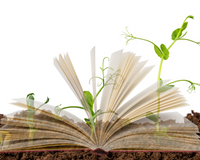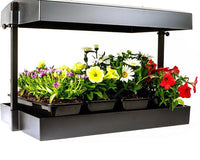
15 Advantages of Hydroponics Vs Soil Farming
Hydroponics is the art of growing crops without soil or any artificial media like perlite or clay pellets. Instead, you’re using water infused with nutrients. Modern science began studying hydroponics in the 1950’s, and this helped the practice catch on in Europe and the USA. However, hydroponic farming is ancient. The Hanging Gardens of Babylon and the floating Aztec gardens are just two examples, If you’re wondering whether to grow your crops using hydroponics vs soil, keep reading for a thorough comparison.

15 Advantages Hydroponic Farming Has Over Soil Systems
- Saves Water
Water requirements for hydroponic depend on the crop you’re growing. Hydroponic vegetables, on average, need 10%-16% of the amount of water required to produce the same yield with soil. Cannabis plants may fall somewhere in that range, depending on the hydroponics system and the strain. In a study of lettuce crops in the Yuma, Arizona area, conventional growing methods required more than 10 times as much water as hydroponic methods. Keep in mind that hydroponics isn’t one growing method, but a whole category. Some systems re-use and re-circulate water and nutrients and therefore require less water.
- No Weeding Required
Without soil, you don’t have to worry about pulling or killing weeds.
- Plants Grow Faster
With all factors other than growing medium being equal, hydroponic crops typically grow 25%-50% faster than soil crops. Some outlier crops may grow twice as fast. Using hydroponics, expect more harvests.
- Yields are Higher
The yield per area (square feet or square meters) of hydroponics systems is normally far higher than what you get from conventional soil systems. So is the yield per plant.
Farmers like to boast an overall yield increase of 300%-1,000%. Hydroponics eliminates the struggle plants normally go through to seek and absorb nutrients. The plants do not need to compete with each other for nutrients either. They use the energy they save to produce more food/medicine - and more quickly - because they’re less distracted.
- You Can Do It with a Tiny Yard or No Yard
Even if you have a tiny yard, you can use a vertical hydroponics system with stacked levels. If you don’t have a yard or balcony, grow indoors.
- Harvesting is Easier
You can buy or create a system that doesn’t make you bend over to harvest your crop. Some rigs are made with specific ergonomic concerns in mind.
- Portability Helps You Conquer Frost
If you’re a minimalist type who uses only buckets and fish tank accessories, then it’s pretty easy to move your crops inside if the weather reports predict below-freezing temperatures. There are more sophisticated systems that allow you beat the frost as well.
- Works Well for Indoor Growing
Indoor growing requires some know-how and proper lighting. Feel free to contact us with any questions you may have.
- You’re Not Limited to a Growing Season
If you’re growing outdoors and the growing season ends, you can take your whole hydroponics setup inside if your system allows you to.
- You Don’t Need Fertile Land
If the soil sucks on your property, don’t worry about it. Try hydroponics instead.
- Less Disease
Hydroponic crops are less vulnerable to disease. However, there is a chance of water contamination and root rot. Overall, it’s still far less of a hassle than soil farming.
- Fewer Insects & Pests
A lot of pests won’t be able to reach your crops, even if you’re growing outdoors. If you elevate the plants, the critters won’t reach them. Most of the usual insects will need to learn how to swim. Your greenhouse may possibly draw some pests, but some natural “biopesticides” have been proven effective at keeping them out.
- Provides an Easier Way to Grow Organic Foods
You won’t have weeds. There’s no soil to prep. You’ll likely have less bugs, and you can use natural pesticides for the ones that do show up.
- Allows for Control of Nutrients & pH
It’s easier to check the pH of your hydroponics system than it is to test soil. To raise the pH, all you may have to do is add some water.
- No Crop Rotation Needed
Monoculture won’t deplete your soil because there is no soil.
Disadvantages of Hydroponics
- Energy Requirements are Higher for Hydroponics if You’re Growing Indoors
- Demands More Monitoring to Make Sure Nothing Goes Wrong
- Mistakes are Easier to Make
- It’s More Expensive to Set Up, Depending on Your System
https://home.howstuffworks.com/lawn-garden/professional-landscaping/hydroponics1.htm
https://www.farmersweekly.co.za/agri-technology/farming-for-tomorrow/hydroponic-water-requirements/
https://www.ncbi.nlm.nih.gov/pmc/articles/PMC4483736/
https://scienceinhydroponics.com/2017/04/maximizing-yields-per-area-in-hydroponics.html
https://www.ncbi.nlm.nih.gov/pmc/articles/PMC5091364/
https://www.producegrower.com/article/an-introduction-to-pests-in-hydroponic-production/ https://ejbpc.springeropen.com/articles/10.1186/s41938-019-0138-4
https://scienceinhydroponics.com/2010/05/how-to-have-a-constant-ph-in-hydroponics-no-more-corrections-o.html









